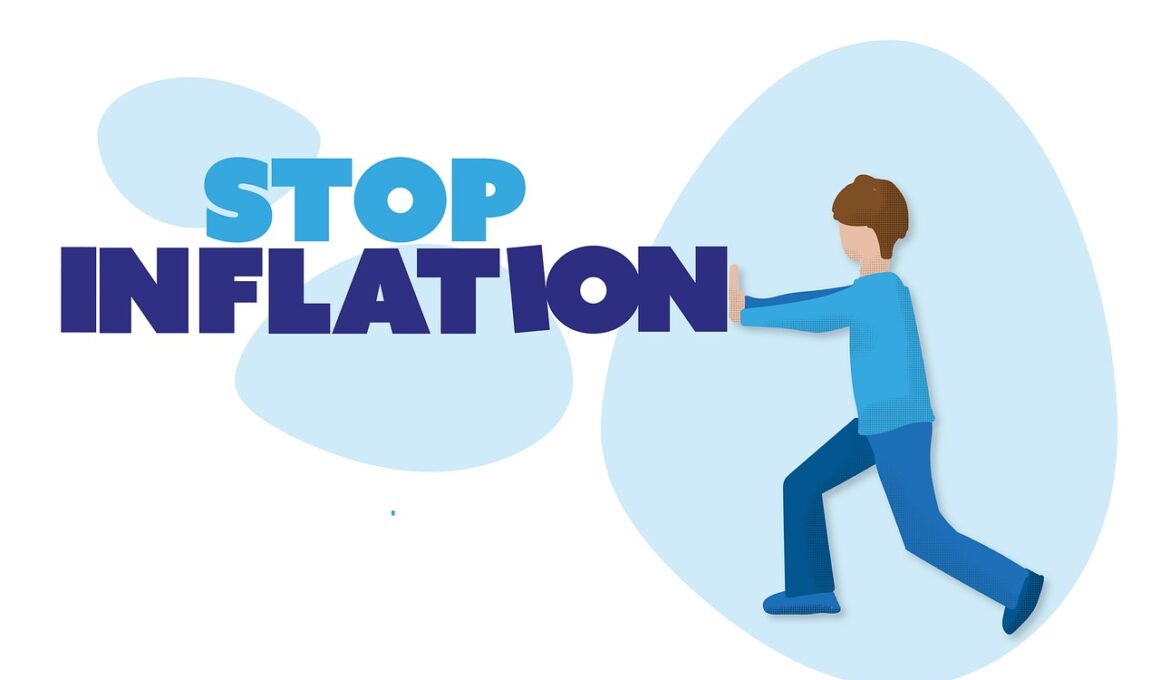Challenges in Implementing Inflation Targeting in Emerging Markets
Inflation targeting has become a popular framework for monetary policy, especially in emerging markets. Despite its potential advantages, implementing this approach is fraught with challenges. One key issue is the credibility of central banks, which is crucial for effective inflation targeting. If the public doubts the commitment or capability of the central bank, it will hinder efforts to control inflation. Alongside credibility, communication plays a significant role; clear and consistent messaging about policy objectives and strategies can help build trust. Emerging markets often face structural challenges that complicate the achievement of inflation targets. These can include fluctuations in commodity prices and currency volatility. Additionally, external economic factors, such as global financial shocks, can impact domestic inflation rates. Central banks must be adept at navigating these complexities to maintain their targets. Another challenge lies in data limitations, including unreliable statistics and delayed information. Policymakers rely heavily on accurate data to make informed decisions. Finally, balancing between inflation control and other economic objectives, such as growth and employment, requires a nuanced approach.
Economic Structural Issues
Emerging markets frequently experience structural economic challenges that complicate inflation targeting. One fundamental issue is the informal sector, which often constitutes a large portion of these economies. Due to the informal nature, tracking economic activities and price changes becomes complex, leading to inaccurate inflation measures. Additionally, emerging markets may be heavily reliant on a limited number of exports, resulting in price volatility. For instance, countries dependent on commodities face challenges if the global commodity prices surge or plummet unexpectedly. Political instability also affects economic performance, which in turn influences inflation. It can disrupt supply chains, cause capital flight, and shift investor sentiment, complicating the task of maintaining a stable inflation rate. Furthermore, these countries often grapple with relatively weaker institutional frameworks, which can result in inadequate monetary policy execution. Local businesses may also get accustomed to high inflation rates, leading to inflationary expectations that are difficult to subdue. As inflation becomes entrenched in business practices, confidence in central bank actions can weaken, undermining the effectiveness of the targeted inflation rate.
Another considerable challenge in implementing inflation targeting involves fiscal policy coordination. In many emerging markets, fiscal policy has not historically been aligned with monetary policy. This misalignment can hinder the effectiveness of inflation targeting. For instance, expansionary fiscal measures can lead to higher demand, pushing prices up and complicating central bank efforts to control inflation. It is essential for fiscal authorities to work in tandem with the central bank to support the inflation targeting framework. This requires a high level of cooperation and communication between different government bodies, which is often lacking in emerging economies. Misinformation and lack of coordination can exacerbate economic fluctuations, leading to inconsistent inflation outcomes. Moreover, the reliance on external financing can also pose challenges. When capital flows fluctuate, they can lead to currency issues and alter inflation dynamics. If foreign investors withdraw rapidly, this can increase the cost of imports, contributing to inflation. Therefore, a comprehensive approach that includes fiscal policy coordination is required for successful inflation targeting. In the absence of cohesive policy measures, achieving inflation targets remains a difficult endeavor for emerging markets.
The Role of Global Economic Conditions
Global economic conditions play a significant role in shaping the effectiveness of inflation targeting strategies in emerging markets. These markets are often more exposed to international market fluctuations than their developed counterparts. For example, changes in global commodity prices can directly influence domestic inflation rates, especially for countries that rely heavily on imports for essential goods. When global commodity prices increase, the resulting higher import costs can lead to immediate inflationary pressure. Additionally, external monetary policies, particularly those of major economies like the United States, can significantly impact emerging markets. When major central banks raise interest rates, capital may flow out of emerging markets seeking higher returns, causing currency depreciation and increased inflation. Turbulent global economic conditions can further exacerbate these effects, adding uncertainty to consumer expectations. Therefore, central banks in emerging markets must carefully consider global macroeconomic indicators when setting their inflation objectives and policies. The interconnectedness of economies means that a singular focus on domestic conditions could lead to unexpected inflation outcomes, emphasizing the necessity of a broader perspective.
In light of these challenges, successful implementation of inflation targeting in emerging markets requires adaptability and innovation. Central banks must be willing to adjust their models according to changing economic conditions. They also need to harness technology and modern data analytics to refine their inflation forecasting methods. Improved data collection methods can lead to better understanding of inflation dynamics, particularly in informal economies. Furthermore, enhancing financial literacy among the populace is critical; an informed public is likely to respond more favorably to monetary policy measures. Education surrounding inflation, its causes, and implications can lead to more rational economic behavior. This, in turn, may mitigate inflationary expectations rooted within the economy. By strengthening institutional frameworks, policymakers can improve the transparency of their actions and decision-making processes. Advances in digital finance can be explored to broaden access to financial services, which can cushion economic shocks. Finally, fostering communication with stakeholders, including businesses and civil society, can create a more inclusive approach towards achieving inflation targets. Such engagement cultivates an environment of cooperation, allowing more significant public support for monetary policies.
Public Perception and Central Bank Independence
A crucial aspect of successful inflation targeting is the public’s perception of the central bank’s independence. In many emerging markets, central banks may be subject to political pressures that undermine their operational autonomy. Central bank independence is vital for maintaining credibility, as it signals to the public that inflation control is a priority. However, real or perceived political interference can lead to skepticism regarding the central bank’s commitment to the inflation targets. If the central bank is viewed as an extension of the government, it may struggle to gain public trust, which is essential for the effectiveness of its policies. Moreover, improving the central bank’s transparency about its policy decisions and the rationale behind them can enhance public understanding and support. Public communication strategies are thus essential in building confidence. Engaging in regular dialogues with stakeholders and the media can help demystify central bank operations. Furthermore, providing updates on monetary policy outcomes can foster a sense of shared responsibility for economic wellbeing. Establishing a strong institutional reputation can reinforce public trust, diminishing the impacts of political influences over time.
Lastly, the journey towards effective inflation targeting in emerging markets is complex and requires long-term strategies. Patience is essential as converting public expectations takes time. Central banks must remain committed to their inflation targets, even in the face of short-term fluctuations and challenges. They need to establish robust frameworks that remain adaptable to changing circumstances. To navigate inherent structural weaknesses, a comprehensive approach that considers socio-economic factors is necessary, focusing on partnership between government bodies. Investing in statistical capacity is fundamental, enabling policymakers to respond swiftly to changing inflation dynamics. Furthermore, international cooperation can provide avenues for knowledge-sharing and best practices among countries facing similar challenges. Participation in international forums can offer insights into innovative strategies employed elsewhere, which can be beneficial for adapting inflation targeting in local contexts. Continuous learning, along with feedback loops, can help refine approaches to monetary policy. Ultimately, achieving sustainable inflation control in emerging markets necessitates a collaborative effort, embracing innovation, and an ongoing commitment to transparency and accountability.
Conclusion
Summarizing the challenges and opportunities for inflation targeting in emerging economies, it is clear that navigating this framework requires nuanced approaches. From institutional credibility to public engagement, multiple facets influence the success of inflation targeting. Policymakers must embrace challenges as opportunities for improvement and restructure monetary frameworks accordingly. Enhanced cooperation between fiscal and monetary authorities will pave the way for a more stable environment, supporting inflation targets. Additionally, fostering public confidence through transparency and communication is paramount for long-term success. Learning from global trends while tailoring strategies to local conditions will help stakeholders mitigate external shocks. Emerging market central banks should leverage technology and data analytics to refine inflation forecasting and decision-making processes. By investing in educational initiatives, they can better equip the public to understand economic policies. Consequently, a well-informed populace is more likely to contribute to economic stability. Establishing strong institutional frameworks and enhancing central bank independence will further enhance credibility and operational efficiency. Ultimately, persistent efforts are essential for achieving inflation targets and ensuring sustainable economic growth.


